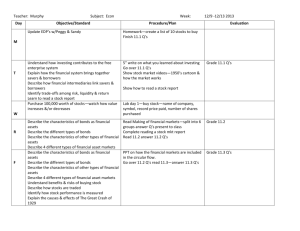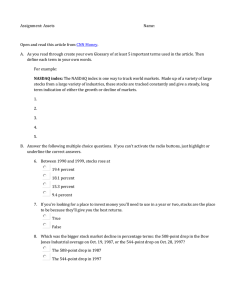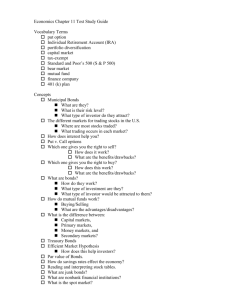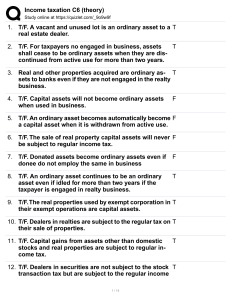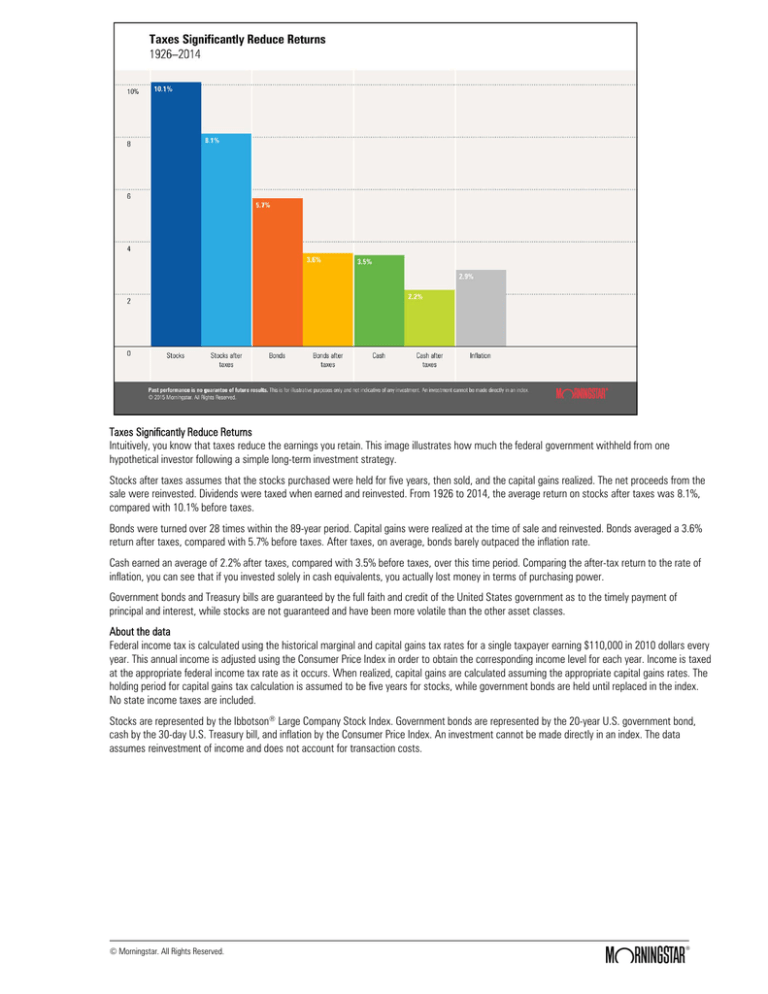
Taxes Significantly Reduce Returns
Intuitively, you know that taxes reduce the earnings you retain. This image illustrates how much the federal government withheld from one
hypothetical investor following a simple long-term investment strategy.
Stocks after taxes assumes that the stocks purchased were held for five years, then sold, and the capital gains realized. The net proceeds from the
sale were reinvested. Dividends were taxed when earned and reinvested. From 1926 to 2014, the average return on stocks after taxes was 8.1%,
compared with 10.1% before taxes.
Bonds were turned over 28 times within the 89-year period. Capital gains were realized at the time of sale and reinvested. Bonds averaged a 3.6%
return after taxes, compared with 5.7% before taxes. After taxes, on average, bonds barely outpaced the inflation rate.
Cash earned an average of 2.2% after taxes, compared with 3.5% before taxes, over this time period. Comparing the after-tax return to the rate of
inflation, you can see that if you invested solely in cash equivalents, you actually lost money in terms of purchasing power.
Government bonds and Treasury bills are guaranteed by the full faith and credit of the United States government as to the timely payment of
principal and interest, while stocks are not guaranteed and have been more volatile than the other asset classes.
About the data
Federal income tax is calculated using the historical marginal and capital gains tax rates for a single taxpayer earning $110,000 in 2010 dollars every
year. This annual income is adjusted using the Consumer Price Index in order to obtain the corresponding income level for each year. Income is taxed
at the appropriate federal income tax rate as it occurs. When realized, capital gains are calculated assuming the appropriate capital gains rates. The
holding period for capital gains tax calculation is assumed to be five years for stocks, while government bonds are held until replaced in the index.
No state income taxes are included.
Stocks are represented by the Ibbotson® Large Company Stock Index. Government bonds are represented by the 20-year U.S. government bond,
cash by the 30-day U.S. Treasury bill, and inflation by the Consumer Price Index. An investment cannot be made directly in an index. The data
assumes reinvestment of income and does not account for transaction costs.
© Morningstar. All Rights Reserved.



